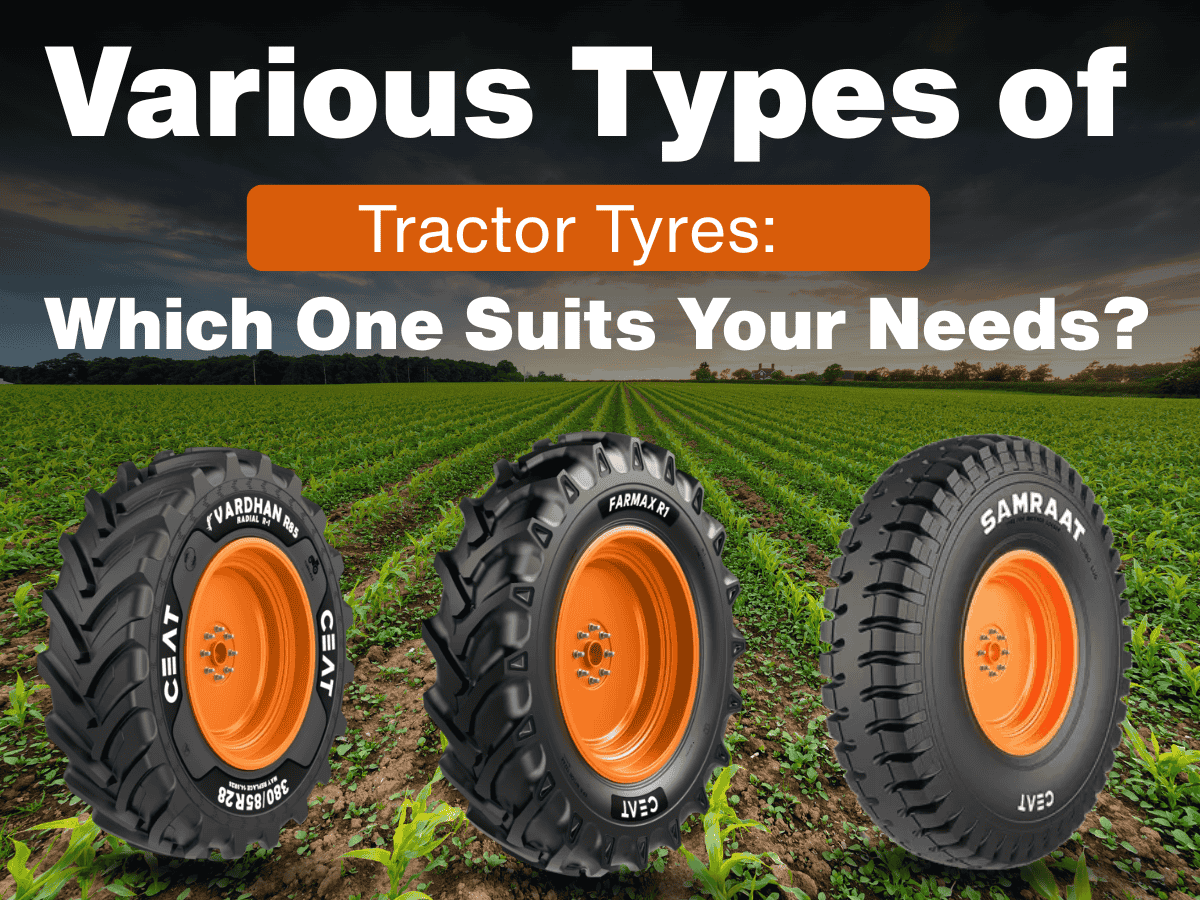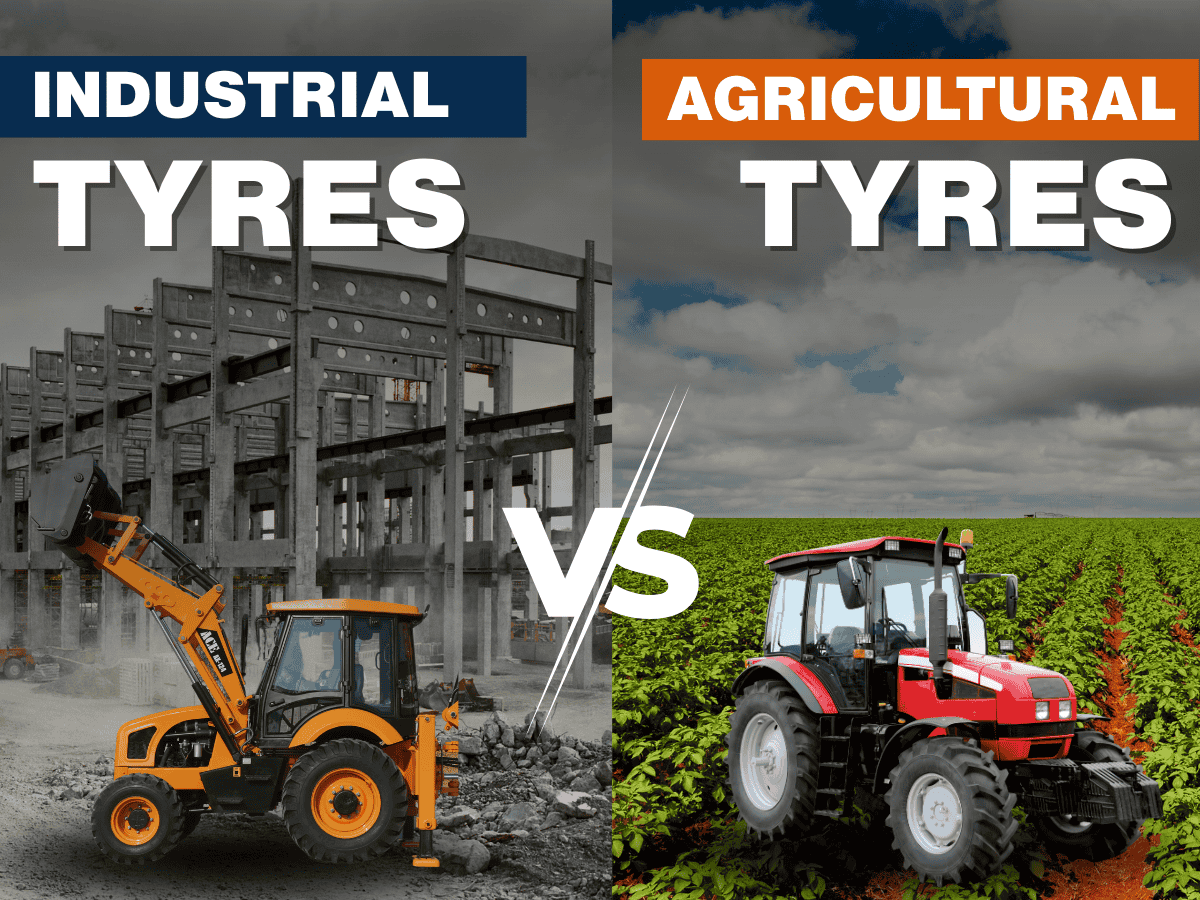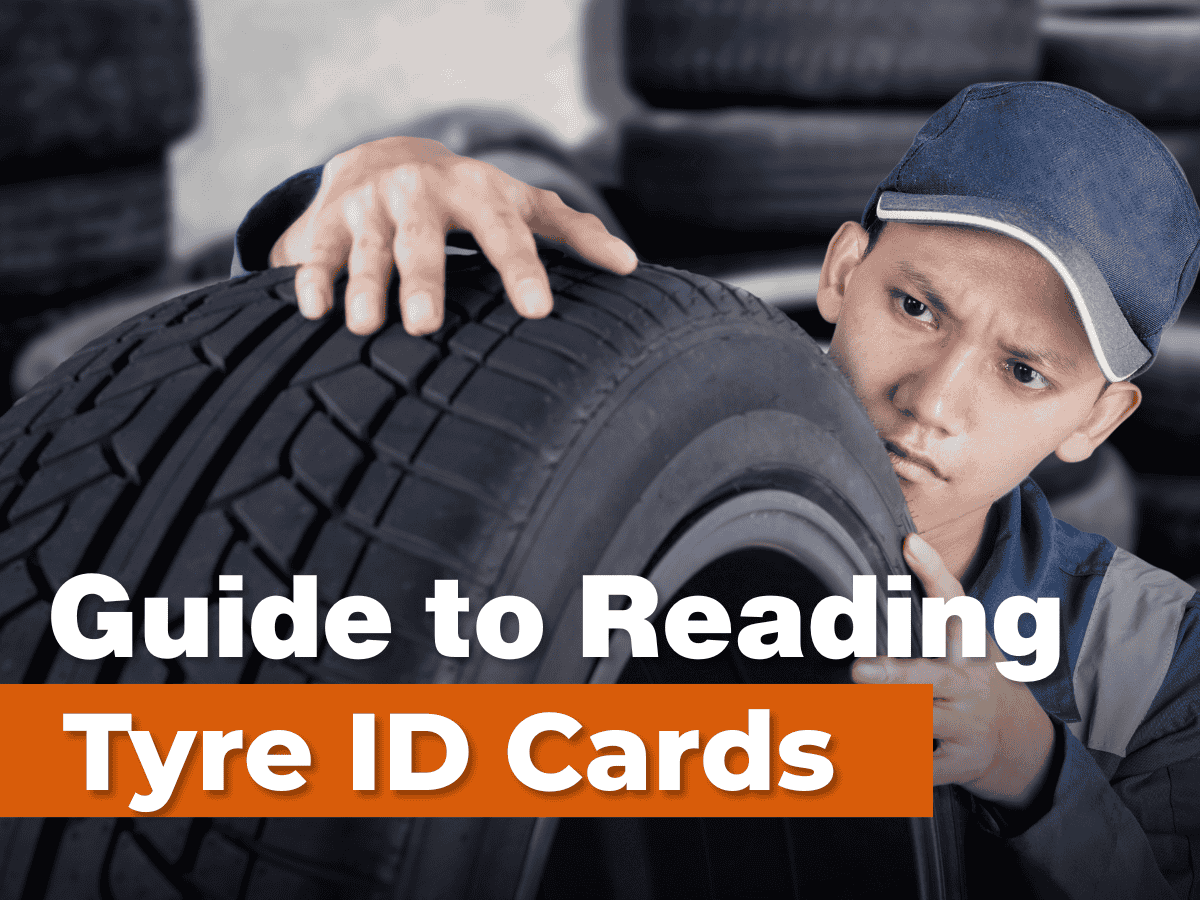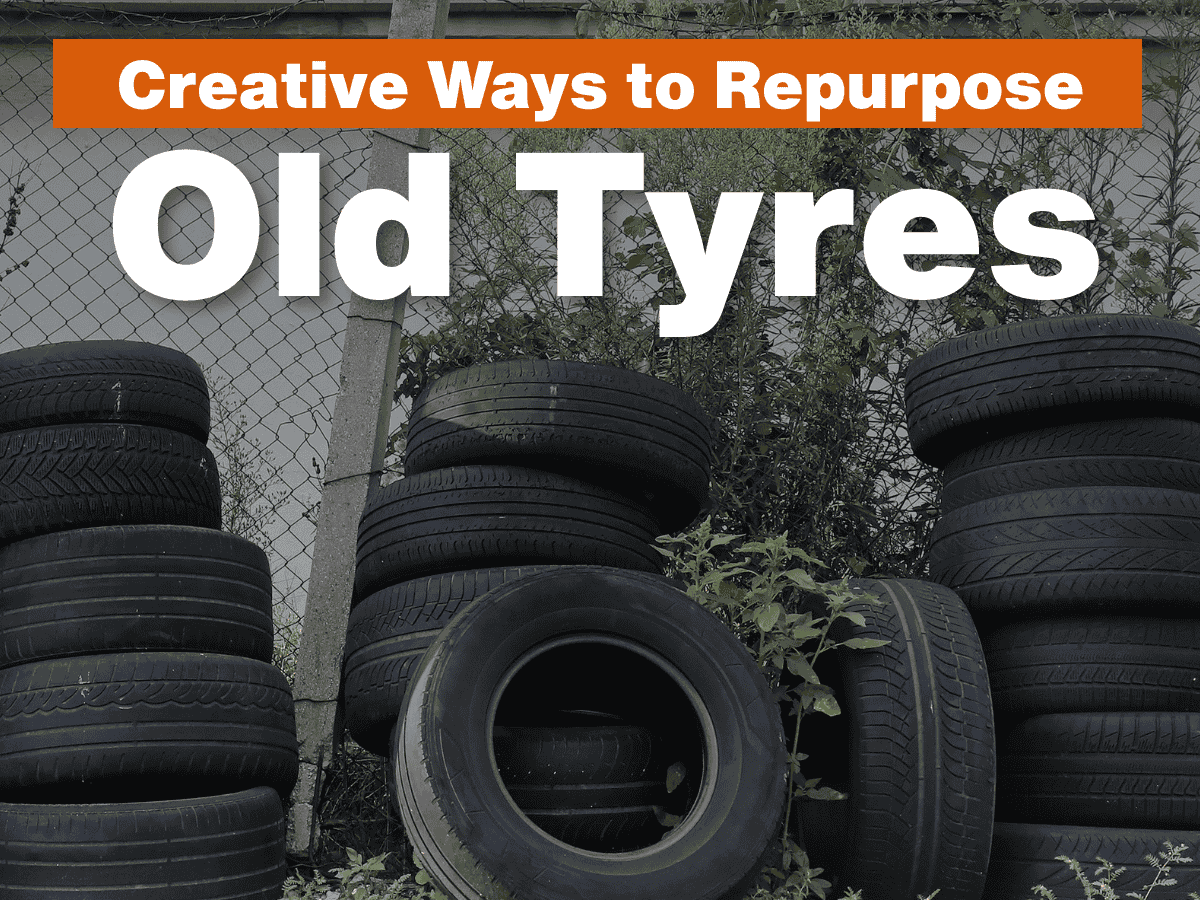ceat-speciality:blogs-tags/all,ceat-speciality:blogs-tags/tyre-advice
Front Loaders and Tyre Stress: What Farmers Need to Know
Tue, 2 Sep 2025 | PRODUCTS
Front loaders are a farmer’s right hand. Whether it’s lifting hay bales, moving grass, or scooping manure, they save time and effort. But here’s the catch: this constant heavy lifting places serious stress on tractor front tyres. If not managed right, it leads to tread wear, sidewall distortion, and even tyre blowouts. The cost? Lost productivity and expensive replacements.
In this guide, we’ll break down how loader tyre stress happens, why it matters, and most importantly—what farmers can do to reduce it. Stick around, because we’ll also talk about CEAT Specialty tyres, which are designed to handle these challenges head-on.
What Causes Tyre Stress with Front Loaders?
When a tractor carries a front loader, the entire weight distribution changes. Instead of sharing the load evenly between the front and rear axles, the front tyres take the brunt of the pressure.
Here’s what happens under load:
- Distortion: Tyre shape bends under extreme weight.
- Tread wear: Continuous work on concrete or hard ground grinds down lugs faster.
- Sidewall fatigue: Constant strain increases the risk of cracks and bulges.
- Heat buildup: Overloaded tyres get hotter, leading to premature wear.
The harder the surface and the heavier the load, the quicker this stress builds up.
Best Practices to Reduce Loader Tyre Stress
Farmers don’t have to accept tyre wear as “part of the job.” With the right practices, you can stretch tyre life and save money in the long run.
1. Balance Loads with Rear Weights
Counterbalancing is crucial. Adding a rear weight or attachment helps shift the centre of gravity back, easing pressure on the front tyres. Without it, the tractor front acts like a punching bag under load.
2. Adjust Tyre Pressure to the Task
Tyre inflation isn’t “set and forget.” Loader work often requires higher tyre pressures than fieldwork. Check your manufacturer’s guidelines and adjust before tackling heavy tasks.
- Too low? Tyres flex excessively.
- Too high? Ride comfort suffers, but you gain stability under load.
Ask yourself: How often do you adjust tyre pressure for loader tasks? If the answer is “rarely,” it might be costing you tyre life.
3. Avoid Abrupt Moves
Sudden turns, jerky lifts, and quick braking multiply tyre stress. Smooth steering and gradual loader movements protect both your tyres and your tractor’s front axle.
4. Control Speed with Loads
Driving fast with a heavy load is a recipe for tyre strain. Keep speeds low when carrying or lifting, especially on rough or hard ground.
Choosing the Right Tyres for Loader Work
Not all tractor tyres are made equal. Standard farm tyres can manage fieldwork but struggle under heavy front loader use. What you need are reinforced tyres designed for high pressure and durability.
CEAT Specialty’s Loader XL Tyres
The CEAT Specialty Loader XL tyre is purpose-built for tractors with front loaders. Here’s what makes it stand out:
- Reinforced construction for handling extra weight.
- Stronger sidewalls to resist distortion.
- Higher load capacity compared to standard tyres.
- Optimised tread pattern for grip on both soft soil and hard ground.
- Longer service life even with intensive use.
Farmers who’ve switched to Loader XL tyre often notice better stability, reduced wear, and fewer downtime issues.
Everyday Tips for Extending Tyre Life
To keep your loader tyres working as hard as you do:
- Inspect tyres daily for cuts, bulges, or abnormal wear.
- Keep rims clean and rust-free.
- Rotate tyres periodically if usage is uneven.
- Store tractors on level ground to avoid uneven pressure.
Wrapping It Up
Front loaders are essential, but they’re also tough on tyres. The good news is you’re not powerless. With balanced loads, smart tyre pressure management, careful driving, and the right tyre choice, you can reduce tyre stress and stretch their lifespan.
If loader work is a daily part of your farm routine, investing in tyres like CEAT Specialty’s Loader XL isn’t just smart. It’s money-saving in the long run.
So, next time you fire up your tractor, ask yourself: Are my tyres really ready for the load?
FAQs
Why do front loader tyres wear out faster?
Because front tyres carry most of the load, especially when lifting or carrying heavy materials, they wear faster than rear tyres. Hard surfaces speed this up.
How often should I check tyre pressure?
At least once a week—or daily during intensive loader work. Tyre pressure is the single biggest factor affecting tyre life.
Can I use regular tractor tyres for loader work?
Yes, but they won’t last as long. Loader-specific tyres, like CEAT Specialty’s Loader XL, are reinforced for heavy-duty use and are far more cost-effective in the long run.
What makes CEAT Specialty different?
CEAT focuses on durable, farmer-first tyre solutions. Their tyres are engineered for longer life, better grip, and lower total cost of ownership.






















